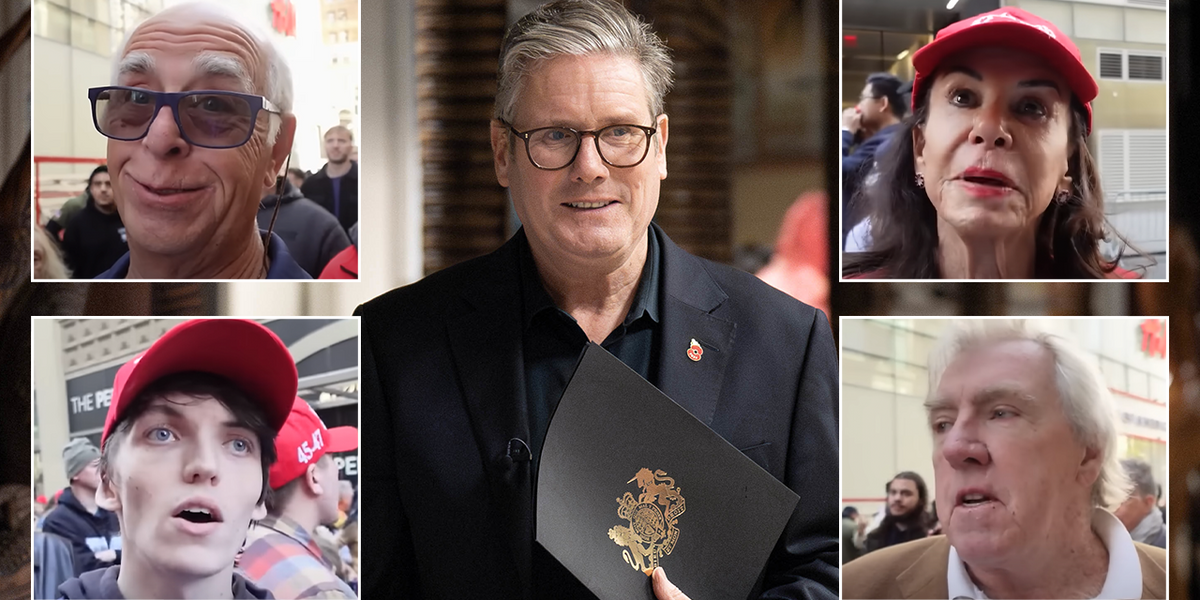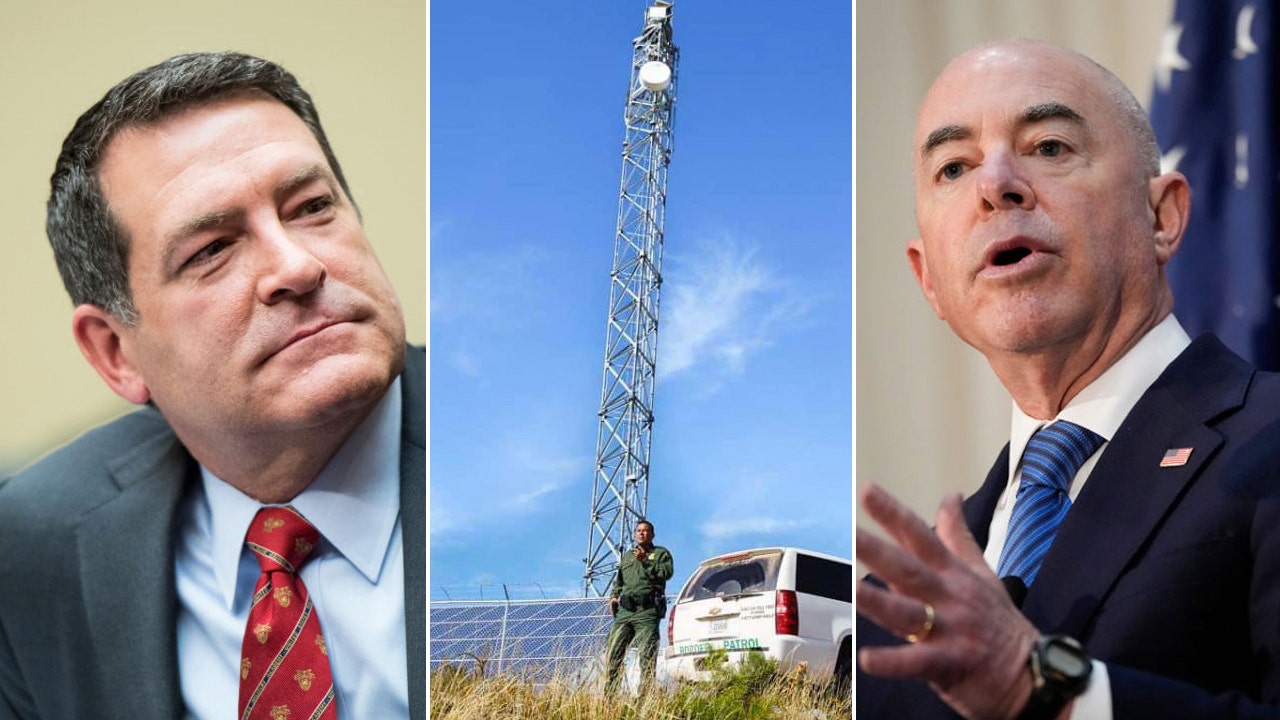As the major presidential candidates proclaim their faith credentials in the final days of the election, it’s noteworthy that Kamala Harris got her big boost into politics from a lover who was a close ally of the cultic mass murderer Jim Jones.
In 1978, Jones led more than 900 followers to their deaths in the jungles of Jonestown, Guyana, by having them drink poisoned juice. It was one of the darkest days of the revolutionary after-life of the 1960s in America.
The sulphurous stench of Jonestown still lingers in American culture. The tragedy was inextricably linked to the trending emergence of a new civil religion replacing “old Christendom.” Charged by hyper-racialist and pan-sexual self-expression, it proved hostile at its core to traditional Christian family life as the foundational basis for the U.S. republic.
The opening ceremony at the Olympics this summer showed how that new civil religion has gone global. Dionysus prancing around a blasphemous LGBTQ parody of the “Last Supper” was very much in the spirit of Jones’ culturally Marxist and nominally Christian new order. That revolution in “normalized” form is now not only livestreamed but mainstreamed. In the United States, it replaces lingering quaint nods to Christianity such as President Eisenhower’s 1950s “In God We Trust” motto on U.S. currency.
Cult Leader Helps San Francisco Democrats
Jones demonically combined a racialist and pan-sexualist political machine with a cult, attracting San Francisco political boss Willie Brown, Harris’ lover and mentor, among other leftist leaders. Jones harvested votes to help their careers and spread their post-1960s ideologies. This new civil religion of power is not so much an atheistic revolutionary ideology as a kind of pagan challenge to what John Adams called the “general principles of Christianity” underlying America.
The goal of destroying the Christian sense of family came from both a Trotskyite sense of The Communist Manifesto and hedonistic consumerism out of Silicon Valley. It exalts personal will while ironically making people more submissive to social control. As if a revolutionary LinkedIn to advance careers, it afflicts all sides of the political spectrum, although the Harris-Walz ticket of “change” is the clearest avatar this election season.
In the 1970s, support from Democrat leaders enabled Jones to operate his abusive cult. Harris’ ex-boyfriend Brown, a former California Assembly speaker and San Francisco mayor, reportedly attended Jones’ Peoples Temple several dozen times and praised Jones liberally. San Francisco Mayor George Moscone appointed Jones chair of the city Housing Authority Commission.
LGBTQ icon Harvey Milk spoke often at Jones’ congregation, saying he found there “a sense of being … I can never leave.” Brown introduced Jones at a testimonial dinner positively as “a combination of Martin King, Angela Davis, Albert Einstein … Chairman Mao.” Brown’s flippancy about Mao, likely the greatest mass-killing leader of history, was more chilling given Jones’ finale, the greatest cluster of forced civilian deaths of Americans prior to 9/11.
Until then, with Jones as an ally Brown spearheaded legalizing homosexuality in California, building his political clout in what became ground zero of the new American civil religion, now also known as “wokeness.” The new quasi-religious awokening from the start sought to override the “laws of Nature and of Nature’s God” cited in the Declaration of Independence.
Kamala Tied to Sexual and Other Marxists
Brown disavowed Jones, but only after the tragedy at Jonestown. Harris never disavowed Brown, who reportedly gifted her with a BMW and travel to Europe while they were lovers. They “dated” in 1994-1995, during which he appointed her (a younger deputy state’s attorney) to two commissions, which gave her a statewide profile. He supported her election as San Francisco district attorney.
Her underlying views continue an ultra-racial and hyper-sexual reinterpretation of what it means to be human that bloomed among northern California leftists in Brown’s era, a culture hostile to what Abraham Lincoln called “one nation under God” and to the Declaration’s view that rights come from God in a Christian context. A century before Jonestown, Fyodor Dostoevsky considered demonic influence a factor in such nihilism in his novel Demons.
Indeed, Jones decided early that as a revolutionary it was not profitable for him to continue in the Soviet-allied American Communist Party, then dogged by an anticommunist FBI. So, he decided to infiltrate American Christianity. He became a pastor in the Disciples of Christ, a time-honored Protestant denomination in which he and his congregation remained until their violent end in 1978.
The new culture behind radical politics in northern California aligned itself with a worldly view of human beings categorized by skin color (the mystical unity of “voices of color”) and preferred sexual orifices and stimulation. Yet it paradoxically presented identity as fluid, unbound by objective limits, except self-willed racial and sexual identities linked to career success.
Claiming a Pastor 400 Miles Away
Harris both benefits from and participates in this new religious culture of the American-led global West. Her parents are of Irish-Jamaican/African and Indian backgrounds. Although her mother and name come from Indian Hindu tradition, she joined an African-American Baptist congregation in San Francisco growing up and married a Jewish man.
After living in Los Angeles for years, she still identifies her home place of worship far away at Third Baptist, San Francisco. The pastor at Third Baptist, the Rev. Amos Brown (no relation to Willie), controversially blamed America for the 9/11 terrorist attack and supported Rev. Jeremiah Wright as President Obama’s former pastor when Wright was attacked for his comments on “God damn America.”
Despite living so far from Third Baptist, Harris often shouts out praise to Amos Brown, and he was one of her guests at Joe Biden’s inauguration. “He has been on this journey with me every step of the way, from when I first thought about running for public office almost two decades ago,” Harris has said. “And he has been such a voice of leadership, more leadership, and leadership in our nation. And so I want to thank you, Dr. Brown, for all that you are – all that you are.”
Consider, too, Harris’ running mate, Minnesota Gov. Tim Walz. He supported placing tampons in boys’ school restrooms to accommodate transgenderism and prioritizing Covid medicine by race. Critics say he let racialist concerns rather than legal principles affect his response to the devastating Minnesota Black Lives Matter and Antifa riots. He assumes the role of “normal” American.
The erosion of the republic’s first principles symbolized by the Harris-Walz ticket doesn’t attempt to erase the Eurocentric Enlightenment, but is its extreme apotheosis. Decoupled from the traditional Christian family, the country stumbles like a sleep-walking giant conflicted by an ethos of self-will, as John Quincy Adams predicted it would.
The Spirits Inside Bolshevik Atheism
The late Dartmouth poet Donald Sheehan said the lesson of the great novels of Dostoevsky — a writer obsessed with nihilism’s advance in the West — was the need for self-emptying in Christ rather than self-assertion. We have the latter today in spades in our new civil religion.
Amid all the self-willed identity power, where is loving our neighbor more than oneself in Christ? In The Gulag Archipelago, Alexander Solzhenitsyn summed up three basic principles of Bolshevik atheism that oddly mesh with the self-assertion of today’s globalizing ethos:
1. Survive at any price. The ends justify the means, even the death of others.
2. Only material results matter. Two wrongs can make a right.
3. Adherence to the “permanent lie.” Don’t disturb the virtual reality in which we all supposedly must swim, lest you disturb your career and loved ones.
Scarily, these rules guide today’s civil religion under the banners of social justice and careerism. In them, “love is love” flatlines as self-love, as the revolution has become live-streamed.
Expressing self-will for power means submitting to the new secular high-tech mass as a rite. It is like a parody of Christian sobornost, or mystical unity, outside the Church as the Body of Christ, and in a dark mist like the biblical sorcerer Bar-Jesus, unable to see.
We are left with the body of Dionysus at the Olympic rituals and the long shadow of Jonestown in the background. We learn to love live-streamed kindly “Momala” and allegedly affable Walz, while off-screen Dionysian maenads would, like Jones, tear apart our children in the medical neutering supported by Harris-Walz.
What’s Weird: Paganism or Christianity?
A new religious spirit is at work, permeating all sides of American politics. We increasingly live in a demonized virtual version of God’s Creation, which often we look right through without seeing.
As a boy, I remember watching in our working-class Chicago neighborhood the broadcast reports of the massacre at Jonestown, feeling “something wicked this way comes.” Jones also directed the killing of investigators including my own cousin, Rep. Leo Ryan. Ryan grew up with my father in a West Side Irish-American enclave. The two went on double dates in high school. I have an early home movie of them wrestling on an inner-city lawn, leftover from an earlier American Dream.
Now the new virtual-reality civil religion as system immerses us online as the new normal. It defines the traditional as “weird,” synonymous with creepy. But once “weird” meant having an otherworldly destiny.
Indeed, traditional Christianity and ideas of self-government that emerged from it have always been weird in the older sense. The memory of Jonestown and the recent live-streaming of global Dionysus from Paris by contrast warn of the danger of normalizing the diabolical.
Christians, however, know this live-streamed revolution will not be the last word. Thank God.
Dr. Paul Kentigern Siewers is associate professor of English at Bucknell University and was the 2018-2019 William E. Simon visiting fellow in religion and public life at the James Madison Program, Princeton University. He is also a priest at St. John of Shanghai and San Francisco Russian Orthodox Mission Church in Lewisburg, Pennsylvania. He teaches and writes on Christian literature and ideas of nature, and on literary resistance to totalitarianism. His views are his own.

 By The Federalist (Politics) | Created at 2024-11-01 12:16:34 | Updated at 2024-11-01 14:42:28
3 hours ago
By The Federalist (Politics) | Created at 2024-11-01 12:16:34 | Updated at 2024-11-01 14:42:28
3 hours ago



